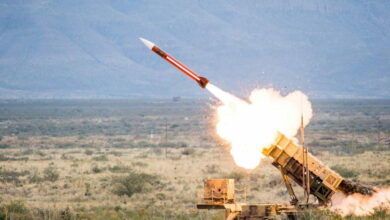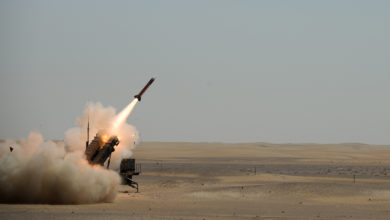European missile manufacturer MBDA has unveiled a hypersonic interceptor concept to provide extra protection for the continent.
Dubbed the “Aquila,” the three-stage rocket design was showcased during the Paris Air Show 2023.
According to the company, the hypersonic interceptor concept resulted from five years of research supported by industry partners from 14 European nations.
The program aims to provide the most effective interception solution for four member states – France, Italy, Germany, and the Netherlands.
Additionally, the concept would ensure the defense and security of European states, particularly against emerging hypersonic threats.
“This project will contribute to reinforcing the sovereign missile systems industry in Europe, by sustaining and developing critical expertise, technologies, and materials, thus boosting European industrial competitiveness,” MBDA chief executive Eric Béranger said.
Paris, Berlin, Rome, and Amsterdam recently reaffirmed their support for the project, signing an agreement on Aquila’s initial common requirements.
Breaking barriers in #aerospace innovation!
Discover Aquila, MBDA's new interceptor against hypersonic threats.
The cutting edge technology will put Europe at the forefront of sovereign multi-layered defence capabilities.Unveiling soon at #ParisAirShow ⬇️ pic.twitter.com/FmamoQdGeI
— MBDA (@MBDAGroup) June 20, 2023
Improving European Resilience
The development of the Aquila hypersonic missile interceptor concept is part of a larger plan to field a European endo-atmospheric interceptor capability by 2030.
Endo-atmospheric capability means that the interceptor can extend to around 100 kilometers (62 miles) above the Earth’s surface but does not go deep into space.
Such an extended air defense domain is vital in the modern world since complex threats such as ballistic missiles, hypersonic cruise missiles, and hypersonic glide vehicles are becoming more sophisticated.
Once developed, the Aquila interceptor would address these new threats and ensure the efficient protection of high-value assets on the continent.
“This project offers a significant European benefit, contributing to European resilience and technological sovereignty by enhancing cooperation and interoperability between EU (European Union) countries,” Béranger explained.











